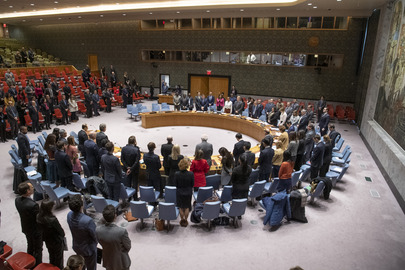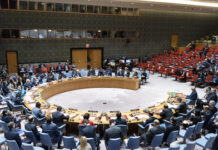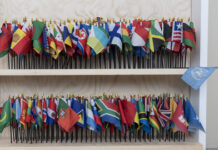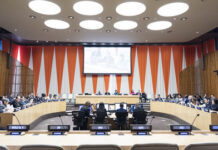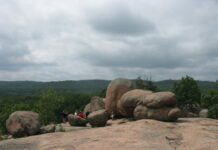This is the News in Brief from the United Nations.
Promising early data on vaccine ‘patches’ is welcome news in battle against measles: WHO
Nobody likes injections and if you have kids, you probably like them even less when it’s time for their vaccine shot.
But now, there could be an easier alternative, in the form of patches that can be simply applied to the skin, much like a sticking plaster.
Early data from a vaccine patch trial in the Gambia has shown promising indications that it could be effective in protecting children from measles.
The UN World Health Organization (WHO) has been helping to develop these vaccine microarray patches – or MAPS – as they are known, for several years already.
Dr Birgitte (Bé-gir-ter) Giersing, team lead at WHO’s Vaccine Product and Delivery Research Unit, said that the patches could be a major breakthrough in protecting vulnerable populations from preventable diseases:
“They are potentially groundbreaking vaccine delivery technology that could really contribute to increasing the coverage of life saving vaccines like measles and rubella like hepatitis B birth dose, especially in low resource settings. And this is because they can be more easily delivered than vaccines that need to be injected, especially in outbreaks or in humanitarian emergency situations.”
Dr Giersing explained that the patches could be especially useful in combating measles and rubella. Vaccines for both of these diseases have been available for decades, but coverage levels dropped during the COVID-19 pandemic and now there are millions of susceptible children in many countries.
“People may be more willing to be vaccinated by a patch than by a needle, so there’s really an acceptability advantage” to the patches, Dr Giersing said.
Gaza: 80,000 displaced from Rafah as Israeli bombardment intensifies
Some 80,000 people have left Rafah since Monday amid continuing Israeli bombardment in and around Gaza’s southernmost city into Thursday, UN humanitarians reported.
Many of those uprooted by Israeli military evacuation orders in eastern Rafah have already been displaced from other areas of Gaza.
They are now leaving with everything they can carry “in vehicles, trucks, (on) motorbikes and donkey carts”, according to the UN agency for Palestinian refugees (UNRWA).
More than 47,500 people are estimated to have left shelters in Rafah on Wednesday alone, UNRWA said, with some families approaching the agency’s shelters at Tel Sultan and Al Mawasi to the west.
The development comes as UN humanitarians repeated warnings about the lack of desperately needed aid reaching highly vulnerable people in Gaza, despite reports that the Kerem Shalom crossing near Rafah had reopened.
Former Guantanamo Bay detainee faces re-victimisation in Algeria, right experts warn
A former Guantanamo Bay prisoner now facing terrorism charges in Algeria should have the case against him thrown out because he has no chance of a fair trial, independent rights experts said on Thursday.
Saeed Bakhouche was transferred from the US detention centre to Algeria in April 2023, under assurances that he would be humanely treated.
But he was immediately arrested in Algeria, “detained incommunicado…threatened in interrogation and denied legal representation”.
He is due to be tried later this month, said the rights experts, who report to the Human Rights Council.
In a statement, the experts who include Ben Saul, Special Rapporteur on countering terrorism, said that Mr. Bakhouche spent more than 20 years at the notorious US military prison in Cuba which was opened to hold suspected terrorists after the 9/11 attacks.
Mr. Bakhouche was tortured at Guantanamo and suffers post-traumatic stress disorder and depression, noted the experts, who warned that he “could not receive a fair and public trial in a national security case” in Algeria.
Among their other concerns, the rights experts highlighted the “overly broad definition of terrorism offences” in Algeria and the threat that Mr. Bakhouche would be detained in prisons “with documented risks of torture”.
Daniel Johnson, UN News.
Source of original article: United Nations (news.un.org). Photo credit: UN. The content of this article does not necessarily reflect the views or opinion of Global Diaspora News (www.globaldiasporanews.com).
To submit your press release: (https://www.globaldiasporanews.com/pr).
To advertise on Global Diaspora News: (www.globaldiasporanews.com/ads).
Sign up to Global Diaspora News newsletter (https://www.globaldiasporanews.com/newsletter/) to start receiving updates and opportunities directly in your email inbox for free.


